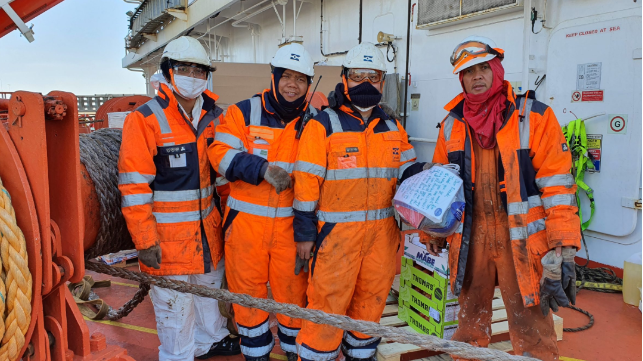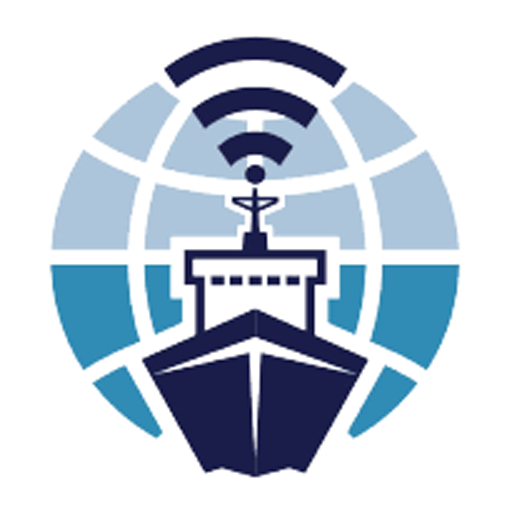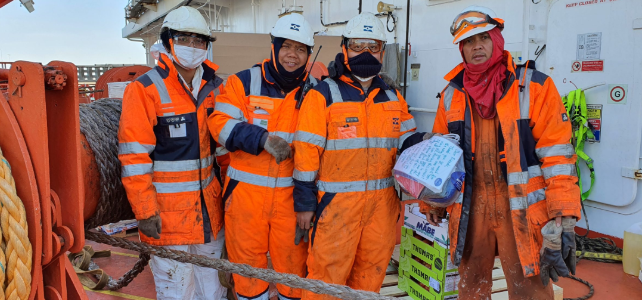A group of maritime organisations have launched a code of conduct and a self-assessment to protect the human rights and welfare of seafarers.
The initiative aims to support a safe, healthy and secure onboard work environment.
The project has been led by the Sustainable Shipping Initiative and the Institute for Human Rights and Business, in collaboration with the Rafto Foundation for Human Rights and RightShip.

Playing a role in the code’s development were several members of the SSI, including Forum for the Future, Louis Dreyfus Company, Oldendorff Carriers, South32, Standard Chartered Bank, Swire Shipping and Wilhelmsen Ship Management.
SSI human rights lead Kristina Kunigenas said a sustainable shipping industry needs to ensure the protection of its workforce.
“This presents a unique opportunity for the industry to work together and take concrete action for the rights of nearly 2 million seafarers worldwide, now and in the future,” she said.
Based on international labour and human rights standards and principles, the code of conduct and self-assessment were created over eight months of consultation and collaboration with shipowners, operators, charterers, cargo owners, seafarers’ associations, civil society and others.
RightShip launched the online self-assessment tool, which was developed in collaboration with SSI and IHRB. This freely available questionnaire provides practical guidance on using the code of conduct, helping shipowners and operators understand their responsibilities while assessing current operations and ways of working, and consequently showing areas for improvement. The self-assessment tool can be found on the SSI website.
RightShip chief product officer Christopher Saunders said, “At RightShip, we have an ambitious vision for a maritime industry that causes zero harm to people and the environment we operate in, so we are delighted to be working with SSI and key stakeholders to deliver this important initiative for seafarers.
“While technology is changing the way that we move cargo, the human contribution to the supply chain is the lifeblood of our industry. Safe, sustainable voyages rely on crews that are supported to work safely, without risk to their wellbeing,” Mr Saunders said.
“We believe the crew welfare code of conduct and self-assessment tool will be a significant step forward in giving our essential workers the respect and recognition they deserve and importantly provide guidance and support to those striving to operate beyond compliance.”
Swire Shipping general manager – sustainable development Simon Bennett said, “Seafarers work long, hard hours, for many months away from their families and friends. They deserve to be treated with respect, and to receive the same rights that their shore-based colleagues experience as the norm, and then more, to take account of the non-standard working environment.
“Many of us had assumed that the ILO MLC (2006) would assure this. But, sadly, the COVID-19 pandemic showed that whilst much was said about the crucial nature of the job they were doing, little was practically delivered, and in fact in many places their treatment became markedly worse,” Mr Bennett said.
“We believe that this Code of Conduct details the areas required to be addressed to ensure that seafarers’ rights are observed, and exhort all shipowners to facilitate, provide them and support shippers and others with interests in our delivering a sustainable and humane shipping value chain and industry to assure themselves, using this assessment, that this is indeed the case.”
Oldendorff Carriers director of communications Scott Jones said the shipping industry has been, and continues to be, focused on reducing its carbon footprint.
“It is equally important that we focus on the human element to make sure that seafarers’ rights are respected and that we have a holistic view to make the industry truly sustainable,” Mr Jones said.
“This code of conduct is an important new step in highlighting seafarers’ rights and giving the shipping industry a sustainable future.”
South32 senior chartering manager Robert Haggquist said the pandemic has highlighted the vulnerability of seafarers and their importance in keeping global supply chains working.
“We are pleased to have worked with likeminded partners across the shipping value chain to deliver this important initiative that we believe will contribute to a more sustainable maritime industry,” he said.
“With this code of conduct, we are addressing the systemic issues in the industry by giving owners and charterers a platform to collaborate and to improve transparency around seafarers’ welfare. Only by improving the respect for seafarers’ rights can we achieve truly sustainable supply chains with positive social impact.”
IHRB deputy chief executive Frances House said the global pandemic brought seafarers rights firmly into focus, with many crews forced to endure exceptionally difficult conditions to keep global supply chains and trade freely flowing.
“We expect a great deal from them and it’s only right that they expect an adequate standard of care, conditions, and quality from us,” Ms House said.
“This is a proud, vital industry that depends on people to keep sailing. This code ofcConduct and self-assessment will help build a platform to respect worker dignity while advancing industry progress. We look forward to widespread engagement from industry stakeholders everywhere.”



Your article helped me a lot, is there any more related content? Thanks!
Can you be more specific about the content of your article? After reading it, I still have some doubts. Hope you can help me.
I don’t think the title of your article matches the content lol. Just kidding, mainly because I had some doubts after reading the article.
Your article helped me a lot, is there any more related content? Thanks! https://www.binance.com/hu/register?ref=FIHEGIZ8
Your point of view caught my eye and was very interesting. Thanks. I have a question for you.
I don’t think the title of your article matches the content lol. Just kidding, mainly because I had some doubts after reading the article.